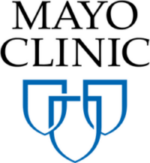Mayo Clinic Thrives in Jacksonville as Florida’s #1 Hospital
In 1986, Mayo Clinic embarked on a courageous journey, extending beyond its Minnesota origins to establish a presence in Jacksonville, Florida. Starting with a modest team of 40 physicians and around 150 staff members, this strategic move has blossomed into an undeniable success story characterized by substantial growth, groundbreaking health care innovations and a profound impact on the local community.
From humble beginnings, Mayo Clinic in Florida has ascended to global recognition. Originally drawn to the region due to the enthusiastic support of its community leaders, Mayo Clinic states that the local talent pool of excellent health care workers and strong business community has supported its growth tremendously. The health care system now stands as a world-class transplant center and a pioneering force in innovative cancer care, attracting top-tier physicians and scientists from across the globe to make their home on the First Coast. With over 900 physicians, scientists, nearly 9,000 employees and ongoing capital projects exceeding $600 million, Mayo Clinic’s influence stretches beyond Florida — it touches patients throughout the United States and around the world.
Jacksonville’s exceptional quality of life plays a pivotal role in Mayo Clinic’s impressive staff recruitment success. The region offers an educated workforce, a concentration of life sciences companies, reputable colleges and universities and a supportive ecosystem that fosters growth. In addition to recruiting talent, Mayo Clinic also actively recruits companies to look at Jacksonville as a great location to expand or relocate, encouraging them to join forces in creating the health care of the future right here in Northeast Florida.
Innovation is at the heart of Mayo Clinic’s mission, propelling patient care through research and education. The Mayo Clinic Innovation Exchange is a testament to this commitment, fostering collaboration among industry, medicine, and science and expediting research commercialization. Jacksonville has served as an incubator for Mayo Clinic’s medical innovation, offering opportunities for its scientists to lead programs for ex vivo organ restoration and develop new chimeric antigen receptor (CAR) T-cell therapies to use a patient’s own blood cells to attack cancers. Soon, the region will be home to the first carbon ion therapy program in the western hemisphere, using the latest technology to treat the most complex cancers.
In addition to their own educational programs in the Mayo Clinic College of Medicine and Science, the health care system collaborates closely with Northeast Florida’s colleges and universities, which are vital talent pipelines to ensure their patients have the caring professionals they need. Especially in allied life sciences fields such as nursing, they are able to build on each other’s strengths with the colleges and universities providing academic and didactic education and Mayo Clinic providing the hands-on clinical experience.
As a not-for-profit hospital deeply embedded in the community, Mayo Clinic collaborates with other institutions to review community health needs and collectively address priorities. Community outreach prioritizes Access to Care, Chronic Diseases and Mental Health, offering support to local organizations. Mayo Clinic’s investment in the Blue Zones Project further enhances community well-being, from health care systems and community organizations, this allows them to enhance efforts to achieve a common goal of improving the lives of the people in the Jacksonville community with the greatest barriers to health.
Mayo Clinic’s growth in Jacksonville continues to meet rising patient demand. Plans include expansion, with the addition of 200 acres to the campus, fostering an integrated life-sciences ecosystem that will bring together private investments, life-sciences companies, Mayo Clinic physicians and researchers and new educational collaborations that will help take Jacksonville to the next level as a city leading the transformation of health care.
.png)
